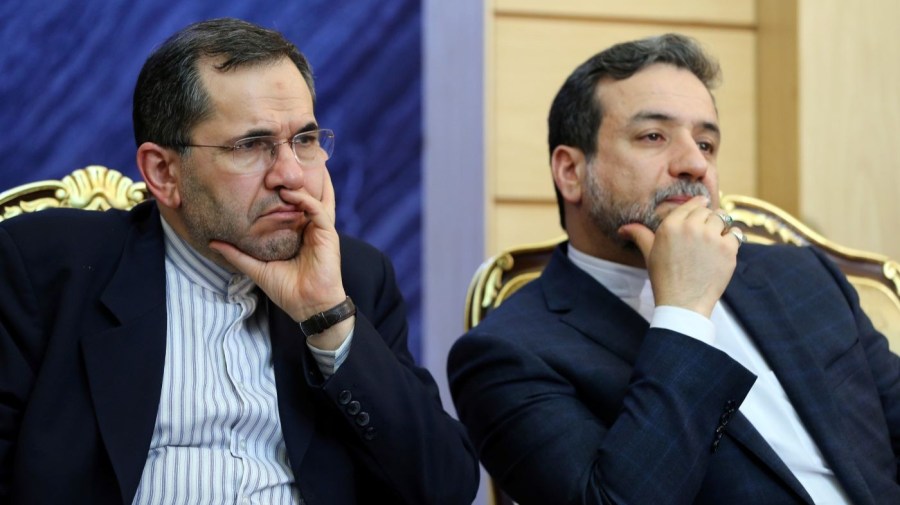Iran won’t retaliate against US or pursue nuclear ‘militarization,’ says top diplomat

Iran will not retaliate further against the United States’s strikes on the Islamic Republic’s nuclear program or pursue nuclear “militarization,” according to one of the country’s top diplomats.
“As long as there is no act of aggression being perpetrated by the United States against us, we will not respond again,” Iran’s Deputy Foreign Minister Majid Takht-Ravanchi said in an interview with NBC News that was published Thursday.
Takht-Ravanchi said that Iran is open to negotiating with the U.S. over its nuclear program, but added that Tehran will not stop enriching uranium.
“Our policy has not changed on enrichment. Iran has every right to do enrichment within its territory. The only thing that we have to observe is not to go for militarization,” Takht-Ravanchi said.
The U.S. military bombed Iran’s three vital nuclear sites — at Fordow, Natanz, and Esfahan — on June 21 after Israel and Iran traded strikes for more than a week. Iran retaliated, launching an attack on the U.S. military Al Udeid Air Base in Qatar. Iran gave advance notice of the attack and Qatar’s defense systems blocked the strikes. U.S. officials said there were zero casualties.
President Trump has celebrated the U.S.’s attack, saying the assault “obliterated” Iran’s three nuclear facilities. He and other administration officials have pushed back against the early, “low confidence” Defense Intelligence Agency assessment that suggested the U.S. military attack set back Iran’s nuclear program by a matter of months.
The Pentagon suggested on Wednesday that Iran’s nuclear program has been set back at least a year.
“I think we’re thinking probably closer to two years, like degraded their program by two years,” Chief Pentagon spokesperson Sean Parnell told reporters.
The Israeli strikes and U.S. attack on Iran came as Washington and Tehran were negotiating over potentially striking a new nuclear agreement. Trump pulled out of the 2015 Obama-negotiated deal in 2018.
“How can we trust the Americans? We want them to explain as to why they misled us, why they took such an egregious action against our people,” Iran’s deputy foreign minister said.
Still, Takht-Ravanchi said Iran is for diplomacy and “for dialogue.” He added that the Trump administration has “to convince us that they are not going to use military force while we are negotiating.”
“That is an essential element for our leadership to be in a position to decide about the future round of talks,” the Iranian diplomat added.
Trump reiterated his desire to restart nuclear negotiations with Iran on Thursday.
“We’re not looking to hurt them. We’re looking to let them be a country again. They got beat up. We were both exhausted, frankly, but Iran really got beat up,” Trump told reporters. “And if they want to meet, I know they want to meet, and if it’s necessary, I’ll do it.”